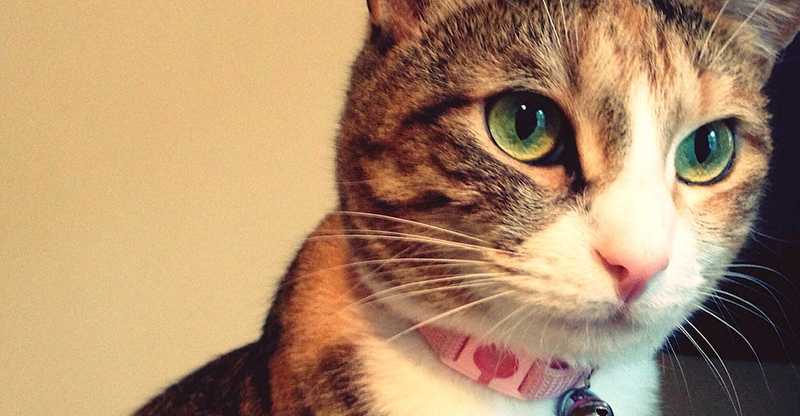Keep Your Cat at a Healthy Weight

You want your new cat to live a long, happy life. One key way to help ensure this is to keep your cat at a healthy weight. Obesity is one of the most common cat diseases that veterinarians treat, and it can lead to many other serious problems, such as arthritis, diabetes, heart disease and liver disease. It can dramatically reduce a cat's healthy years - unless, of course, you start your life together on a healthy note!
Body condition
By helping your cat maintain an ideal body condition, you're helping her maintain a high quality of life. If you have a kitten, start healthy habits early. If you have an adult cat, take a close look at her shape:
- Can you feel your cat's ribs?
- When you look at your cat from above, does she have an hourglass shape?
- Does she have a tucked waist behind her ribs when viewed from the side?
If you answered no to any of these questions, your cat may be overweight and needs to see your veterinarian to rule out any medical problems. If you answered yes to all of them, your cat has an ideal body condition. That's great! Your job is to help her maintain it with proper nutrition and regular exercise.
Nutrition
A high-quality, complete and balanced diet, when fed correctly, can help your cat live a happy, healthy life. Start your cat off right with the best nutrition possible. Kittens do best on kitten-specific formulas that meet the unique needs of their growing bodies. If you have an adult cat, it's important to choose a food that helps her maintain a healthy weight. If your cat is overweight, your veterinarian may recommend feeding her a formula with fewer calories. These formulas often have names like "healthy weight", "weight management" or even "indoor".
When determining how much to feed, always use the guidelines on the bag. If your cat needs to lose weight, your veterinarian may suggest reducing her daily food allowance until she reaches a healthy weight. Monitor her weight regularly. If she continues to gain weight, you may need to adjust her feeding amount again or pay another visit to your veterinarian. Also note that the energy requirements of cats changes during their lives, so food intake should be adjusted regularly. Cats are most likely to have extra weight between the ages of 7 and 12.
Cats should always have several meals throughout the day, no matter their weight. If your cat is overweight, the size of those meals should be reduced as advised by your veterinarian. You want to ensure body weight losses are slow and gradual to avoid further health issues. If your cat is an eager eater and you want to help slow her down, you can place her small meals in different areas of your home to allow her to "hunt" for it. Or try using a puzzle feeder or other food-dispensing toy that she can manipulate to get the food out. This encourages her natural hunting behavior, slows down her eating, and gives her exercise.
Exercise
The benefits of exercise are widely known. Exercise often has the added benefit of discouraging destructive behavior. Bored, energetic cats need some way to release their pent-up energy, so helping them through play is good for everyone!
Make time to play with your cat in the morning and evening, when cats are typically most active. Use toys and games to bring out her inner hunter. Entice her to chase and pounce by using wand-style toys, laser pointers or running your gloved hand (to protect against claws) under an old blanket. While interactive play provides mental and aerobic activity, remember that cats are solitary hunters. So, be sure to give your cat plenty of opportunities for independent play. Scatter toy mice or balls throughout your home for her to hunt.
If you're concerned about your cat's weight, talk to your veterinarian. He or she can help you establish a plan to get your cat back to a healthy weight, so she can live the healthy, happy life you both want.